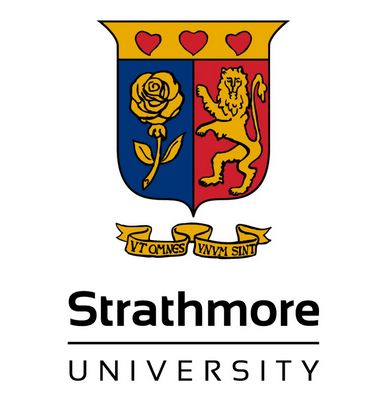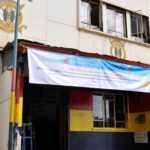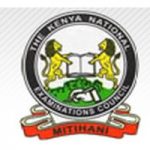Kasneb has a new syllabus for those pursuing CPA,CIFA,CICT,CCP,CS ATC,ICTT,CMT and IST which took effect in July 2015.Those who wish to pursue the Kasneb professional courses will have detailed syllabuses in this article.
The following is a comprehensive and summarized syllabus for all the courses offered by Kasneb.The syllabus is the same for candidates sitting for exams in Kenya,Tanzania,Uganda,Rwanda,India and any other country that has candidates for the professional courses.
The following examinations will be administered under the new syllabuses:
• Certified Public Accountants (CPA)
• Certified Secretaries (CS)
• Certified Information Communication Technologists (CICT)
• Certified Investments and Financial Analysts(CIFA)
• Certified Credit Professionals(CCP)
Exams to be phased out include:
(a)Accounting Technicians Certificate (ATC)
(b)Information Communication Technology Technicians (ICTT)
(c)Credit Management Technicians (CMT)
(d)Investment and Securities Technicians (IST)
KASNEB has also introduced:
Diploma Examinations
(i)Accounting Technicians Diploma (ATD)
(ii)Diploma in Information Communication Technology (DICT)
(iii)Diploma in Credit Management (DCM)
To access details of fee structure click HERE
Certified Public Accountants CPA Syllabus
Section 1
Financial Accounting (CA11)
Commercial Law (CA12)
Entrepreneurship and Communication (CA13)
Section 2
Economics (CA21)
Management Accounting (CA22)
Public Finance and Taxation (CA23)
Section 3
Company Law (CA31)
Financial Management (CA32)
Financial Reporting (CA33)
Section 4
Auditing and Assurance (CA41)
Management Information Systems (CA42)
Quantitative Analysis (CA43)
Section 5
Strategy, Governance and Ethics (CA51)
Advanced Management Accounting (CA52)
Advanced Financial Management (CA53)
Section 6
Advanced Public Finance and Taxation (CA 61)
Advanced Auditing and Assurance (CA 62)
Advanced Financial Reporting (CA63)
To access details of fee structure click HERE
Certified Secretaries Syllabus (CS)
Organisational Behaviour (CS11)
Company Law (CS12)
Business Communication (CS13)
Section 2
Economics (CS21)
Principles of Accounting (CS22)
Public Finance and Taxation (CS23)
Section 3
Company Law (CS31)
Financial Management (CS32)
Principles and Practice of Management (CS33)
Section 4
Corporate Secretarial Practice (CS41)
Management Information Systems (CS42)
Law and Procedure of Meetings (CS43)
Section 5
Human Resource Management (CS51)
Financial Markets Law (CS52)
Governance and Ethics (CS53)
Section 6
Strategic Management (CS61)
Public Policy and Administration (CS62
Governance and Secretarial audit (CS63)
To access details of fee structure click HERE
CICT Syllabus
Section 1
Introduction to Computing (CT11)
Computer Applications-Practical (CT12)
Entrepreneurship and Communication (CT13)
Section 2
Operating Systems-Practical (CT21)
Principles of Accounting (CT22)
Computer Support and Maintenance (CT23)
Section 3
Database Systems (CT31)
Systems Analysis and Design (CT32)
Structured Programming (CT33)
Section 4
Object Oriented Programming (CT41)
Web Design and e-Commerce (CT42)
Data Communication and Computer Networks (Practical) (CT43)
Section 5
Strategy, Governance and Ethics (CT51)
Software Engineering (CT52)
Mobile Application Development (CT53)
Section 6
Systems Security (CT61)
Information Systems Project Management (CT62)
Research Methods (CT63)
To access details of fee structure click HERE
Certified Investment and Financial Analyst Syllabus (CIFA)
Section 1
Financial Accounting (CI11)
Financial Mathematics (CI12)
Entrepreneurship and Communication (CI13)
Section 2
Economics (CI21)
Financial Institutions and Markets (CI22)
Public Finance and Taxation (CI23)
Section 3
Regulation of Financial Markets (CI31)
Corporate Finance (CI32)
Financial Statement Analysis (CI33)
Section 4
Equity Investment Analysis (CI41)
Portfolio Management (CI42)
Quantitative Analysis (CI43)
Section 5
Strategy, Governance and Ethics (CI51)
Fixed Income Investment Analysis (CI52)
Alternative Investments Analysis (CI53)
Section 6
Advanced Portfolio Management (CI61)
International Finance (CI62)
Derivatives Analysis (CI63)
To access details of fee structure click HERE
CCP Syllabus
Section 1
Credit Management (CP11)
Commercial Law (CP12)
Entrepreneurship and Communication (CP13)
Section 2
Economics (CP21
Principles of Accounting (CP22)
Public Finance and Taxation (CP23)
Section 3
Company Law (CP31)
Financial Management (CP32)
Marketing and Public Relations (CP33)
Section 4
Law Governing Credit Practice (CP41)
Management Information Systems (CP42)
Quantitative Analysis (CP43)
Section 5
Strategy, Governance and Ethics (CP51)
Banking Law and Practice (CP52)
Credit Management in the Financial Sector (CP53)
Section 6
Debt Recovery (CP61)
Corporate Lending (CP62)
Credit Practice (CP63)
To access details of fee structure click HERE
Specific transition provisions
The transition provisions from the current syllabuses to the revised syllabuses
are as follows.
1. CPA, CPS, CICT, CSIA and CCP students
(a) All students for the above listed examinations will convert to the revised examination syllabuses commencing 1 July 2015 in the various parts and sections that they will have progressed to in the current syllabuses.
(b) Exemptions:
(i)Where a student had been granted an exemption in a particular paper, the exemption will be retained. This will include papers where the titles may have changed but the substantive content has remained the same, such as Management Accounting (previously Cost Accounting) in CPA Section 2.
(ii)However, where a student had been granted exemption in a paper which, under the revised syllabuses, has been moved to a section which the student will have already completed as at the
May 2015 sitting, the exemption fee paid for the paper concerned will be credited to the student’s account at KASNEB.
(iii)Exemptions granted for whole sections or parts under the current syllabuses shall be retained under the revised syllabuses.
(c)Credit retentions for students who will not have completed their respective sections after the May 2015 sitting will be retained provided that the paper(s) with credit retentions have remained in the same section(s) under the revised syllabuses.
2. ATC, ICTT, IST and CMT students
The four technician examinations namely ATC, ICTT, IST and CMT will be phased out after the November/December 2015 sitting.
A parallel examination administration system will be adopted for the technician examinations during the November/December 2015 sitting with a view to phasing out the examinations after the November/December 2015 sitting.
Under the parallel system, the technician examinations will be administered together with the diploma examinations namely ATD, DICT and DCM in the November/December 2015 sitting.
The transition arrangements will work out as follows:
1. Students currently in ATC/ICTT/CMT Level I who sit and pass the May 2015 sitting
(a)The students will be required to choose either ATC/ICTT/CMT Level II as applicable, or Level II of the respective Diploma in the November/December 2015 sitting.
(b)Students who choose the ATC/ICTT/CMT Level II and pass during the November/December 2015 sitting will graduate under the respective examination passed. Those who do not pass will be transferred to Level II of the respective Diploma with effect from 1 January 2016.
(c)Students who choose the respective Diploma Level II and pass the November/December 2015 sitting will proceed to Diploma Level III from 1 January 2016. Those who fail will repeat the respective Diploma Level II from 1 January 2016.
2. Students currently in ATC/ICTT/CMT Level I who sit but do not pass the May 2015 sitting
(a)The students will be required to resit the papers not passed in ATC/ICTT/CMT Level I in the November/December 2015 sitting.
(b)Students who pass the ATC/ICTT/CMT Level I in the November/December 2015 sitting will proceed to the respective Diploma Level II from 1 January 2016. Those who do not pass will be transferred to Level I of the respective Diploma with effect from 1 January 2016.
3.Registered students in ATC/ICTT/CMT Level I who have not booked the May 2015 sitting (mostly new students)
(a)The students will be allowed to book for either ATC/ICTT/CMT Level I as registered, or the respective Diploma Level I in the November/December 2015 sitting.
(b)Students who pass the ATC/ICTT/CMT Level I in the November/December 2015 sitting will proceed to the respective Diploma Level
II. The same will apply to those who sit and pass the Diploma Level I.
(c)Students who fail the ATC/ICTT/CMT Level I or Diploma Level I in the November/December 2015 sitting will repeat the Diploma Level I with effect from 1 January 2016.
4. Students currently in ATC/ICTT/CMT Level II who sit and pass the May 2015 sitting
The students will graduate.
5. Students currently in ATC/ICTT/CMT Level II who sit but do not pass the May 2015 sitting
(a)The students will be required to resit the papers not passed in ATC/ICTT/CMT Level II in the November/December 2015 sitting.
(b)Students who pass the ATC/ICTT/CMT Level II in the November/December 2015 sitting will graduate. Those who do not pass will be transferred to Level II of the respective Diploma with effect from 1 January 2016.
6.IST students
(a)Students who pass Level I of the IST examination during the May 2015 sitting will proceed to Level II of the examination and be eligible to sit for that Level during the November/December 2015 sitting
(b)Students who do not pass Level I of the IST examination during the May 2015 sitting will be expected to resit the papers not passed in the same level during the November/December 2015 sitting.
(c)Students who pass Level II of the examination either during the May 2015 sitting or the November/December 2015 sitting will be allowed to graduate in the respective sitting.
(d)Students who do not pass either Level I or Level II of the IST examination in the November/December 2015 sitting will be required to transit to either the ATD or DCM in the respective levels.
Both graduates of the Technician and Diploma examinations will be eligible to pursue the relevant professional programmes of KASNEB.
3. Other transition provisions
(a) Students who are eligible to convert to the Diploma programmes (ATD/DICT and DCM) will be allowed to do so and book the November/December 2015 examinations up to 15 September 2015 by paying the normal examination entry fees.
(b)All credit retentions for ATC, ICTT, IST and CMT will expire after the November/December 2015 sitting
You can visit http://www.kasneb.or.ke for more information















